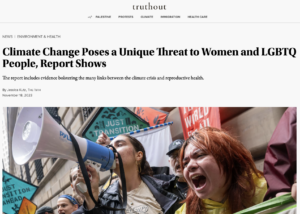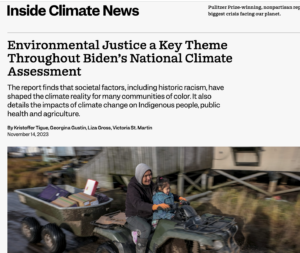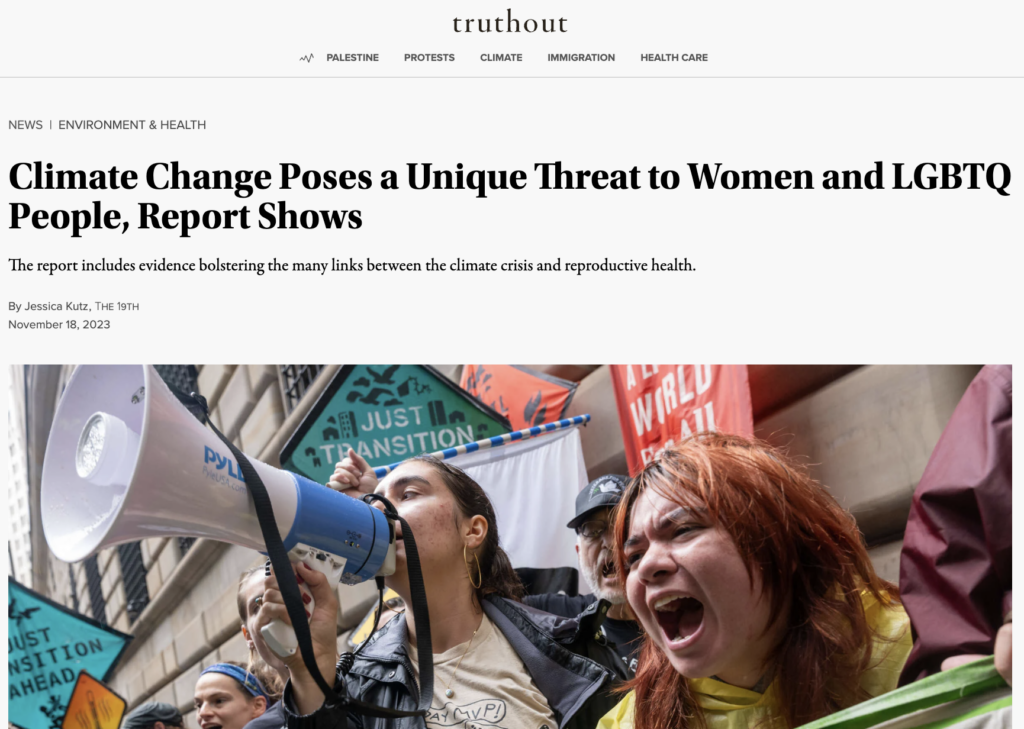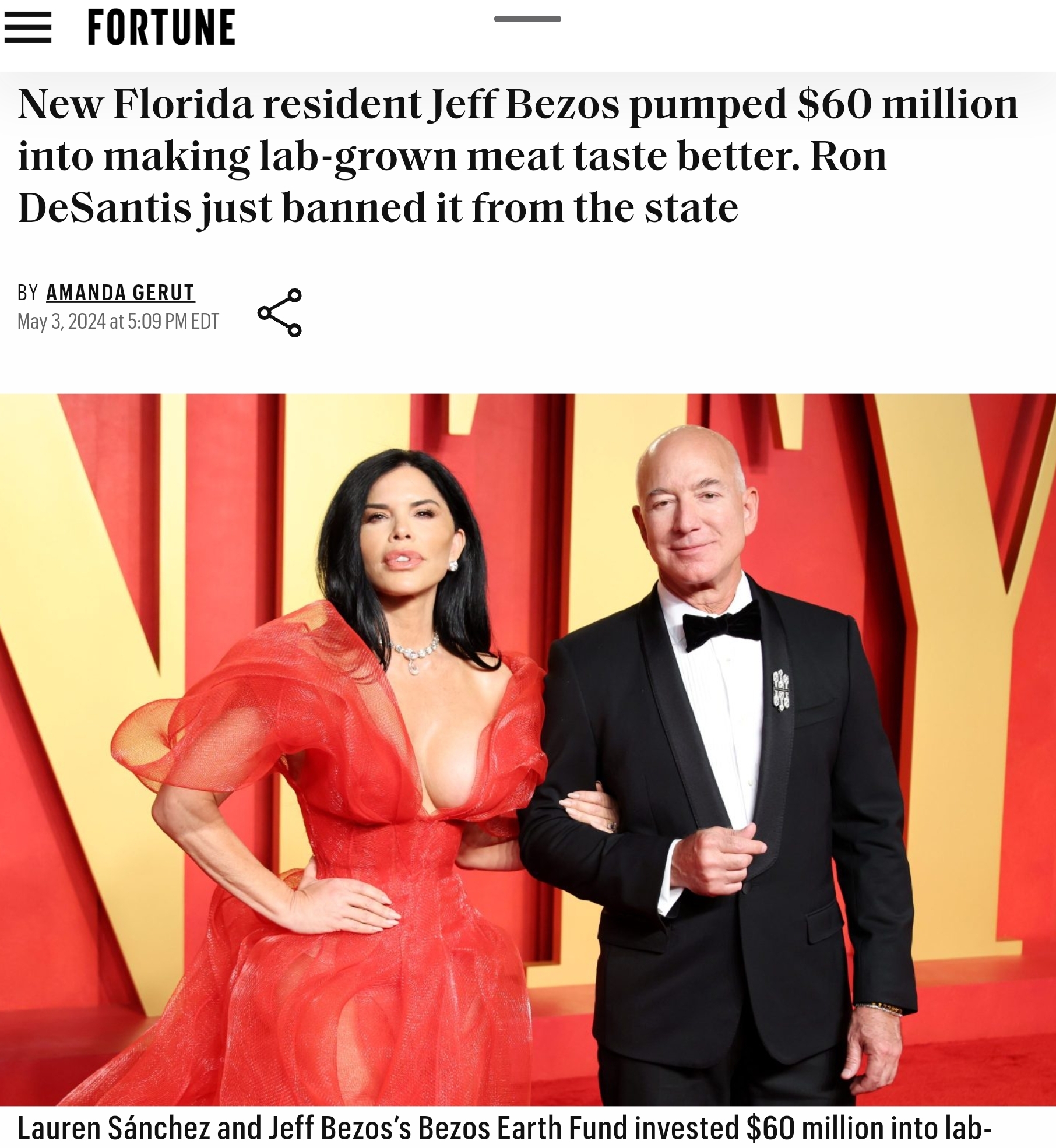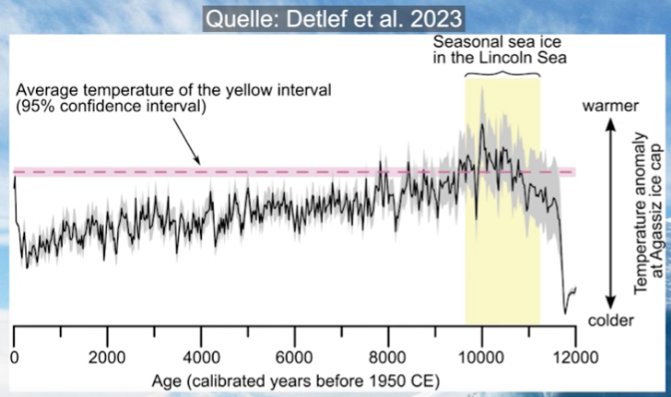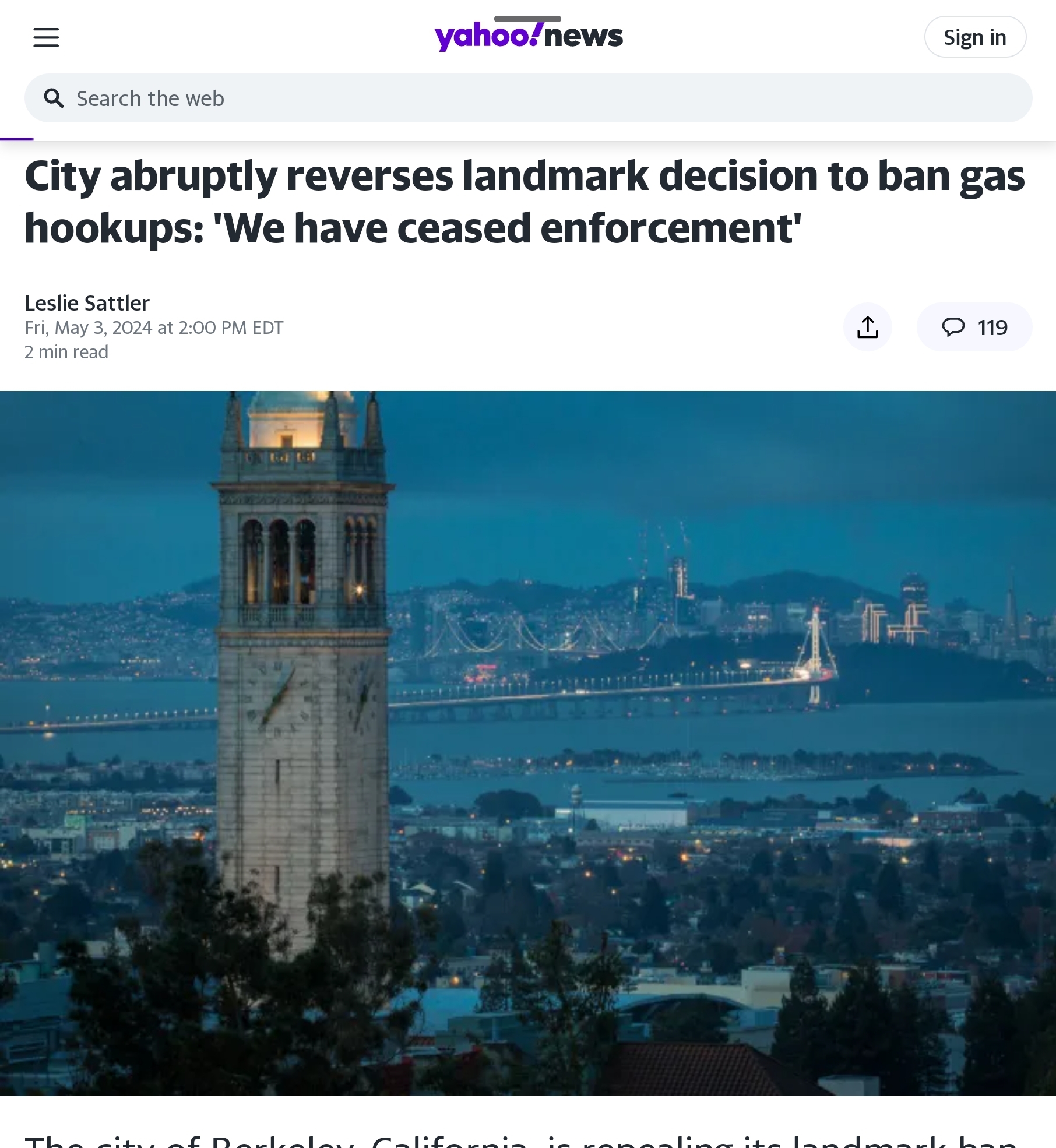By Jessica Kutz
For the first time, a national climate assessment has included a section dedicated to women’s health and acknowledges that LGBTQ+ people are more vulnerable to the climate crisis.
The Fifth National Climate Assessment was released Tuesday by the U.S. Global Change Research Program, a project mandated by Congress that aims to help the public understand climate change impacts. The report, which comes out approximately every five years, is one of the most important domestic barometers on the climate crisis, that summarizes the latest research from scientists across the country on how climate change is already impacting or is projected to impact the country.
This year’s report delved into the ways climate change is hurting every region of the United States and also highlighted the work being done locally and nationally to help residents adapt to the climate crisis and to lower carbon emissions. Still, the assessment finds that the scale of climate action does not meet the urgency of the climate crisis, and to a certain extent many of the impending impacts of climate change are already locked into our future.
The fact that the report includes a subsection on women’s health is an indicator that this public concern has grown, with new evidence bolstering the many links between the climate crisis and reproductive health.
“It signifies that the government is paying attention to the large amount of evidence that exists on this issue,” said Skye Wheeler, emergencies researcher for the Women’s Rights Division of Human Rights Watch, an international NGO. “What I was especially pleased about is that I think the science and the way that it has been framed in this report really highlights the importance of approaching the issue from an intersectional or reproductive justice position.”
In a change from previous assessments, this report paid special attention to how intersecting identities can make certain populations more vulnerable. “If you go back to the earliest National Climate Assessment, that’s super sciency,” Wheeler said. “Very much about climate science, basically about the weather. But we aren’t there right now, we can’t just talk about the weather, we’ve got to talk about social injustices, because that’s where the pain is, right? That’s where the climate crisis is.”
Here is what the report had to say about how climate change is impacting women and LGBTQ+ people.
Women’s health is at risk
“Women disproportionately experience the burden of climate change because of unique mental, sexual, and reproductive health needs that intersect with existing social, racial, and economic disparities.” – Fifth National Climate Assessment
Through the report, authors made sure to contextualize risk through an intersectional lens, explaining how gender, race and socioeconomic status can exacerbate someone’s vulnerability to the climate crisis.
…
LGBTQ+ people are vulnerable, particularly post-disasters
“Sexual and gender minorities (SGMs) face social, economic, and health disparities and, as a result, experience greater risk of harm from climate change.” – Fifth National Climate Assessment
Also for the first time, the report explains what the research says around vulnerabilities LGBTQ+ people face due to the climate crisis.
It cited research finding that LGBTQ+ people have a more difficult time accessing resources post disasters due to the involvement of faith-based groups in recovery who sometimes hold anti-LGBTQ+ beliefs, or have even refused to provide service to members of this community. In some cases faith-based groups have even blamed LGBTQ+ people for “devastating hurricanes and wildfires as a punishment from God,” the report states.
…
A more inclusive workforce and economy are needed to adapt
“Workforce training and equitable access to clean energy jobs, which have tended to exclude women and people of color, are essential elements of a just transition to a decarbonized economy.” – Fifth National Climate Assessment
The report calls out the transportation sector, in particular, saying it faces a labor shortage due to “aging, high retirement rates, retention issues, and industry-wide shortages for specific essential jobs.” Transportation is one of the main sectors undergoing industry-wide shifts as the country moves to electrify both public and private transit. In addition, the report calls out the importance of new jobs in the energy transition and for construction of climate-resilient housing — sectors of the economy where there are also intense labor shortages.
Part of the workforce problem, called out in the assessment, is the persistent underrepresentation of women and people of color. The report suggests that better human resources management could help train and expand the workforce to meet the needs of climate adaptation and mitigation work.
…
There are gendered impacts of our food insecurity
“As the climate changes, increased instabilities in US and global food production and distribution systems are projected to make food less available and more expensive. These price increases and disruptions are expected to disproportionately affect the nutrition and health of women, children, older adults, and low-wealth communities.” – Fifth National Climate Assessment
According to research from the United States Department of Agriculture, women and single mothers in particular are already more vulnerable to food insecurity. Over 30 percent of households headed by single mothers are food insecure, as are nearly 15 percent of women who live alone.
Climate change is also impacting food that is obtained through subsistence farming and hunting and cultural practices. Elsewhere the report describes how in rural Alaska, Iñupiat women’s lives are becoming more difficult due, in part, to their land-based food and cultural systems that are threatened by climate change.
Women ranchers were also found to be disproportionately impacted by climate change, because they had less knowledge around how to deal with drought and weaker connections to networks in a profession dominated by men.
#
For the first time, a national climate assessment has included a section dedicated to women’s health and acknowledges that LGBTQ+ people are more vulnerable to the climate crisis. The Fifth National Climate Assessment was released Tuesday by the U.S. Global Change Research Program, a project mandated by Congress that aims to help the public understand climate change impacts. …
In a change from previous assessments, this report paid special attention to how intersecting identities can make certain populations more vulnerable. “If you go back to the earliest National Climate Assessment, that’s super sciency,” Wheeler said. “Very much about climate science, basically about the weather. But we aren’t there right now, we can’t just talk about the weather, we’ve got to talk about social injustices, because that’s where the pain is, right? That’s where the climate crisis is.” …
Through the report, authors made sure to contextualize risk through an intersectional lens, explaining how gender, race and socioeconomic status can exacerbate someone’s vulnerability to the climate crisis.
“Women disproportionately experience the burden of climate change because of unique mental, sexual, and reproductive health needs that intersect with existing social, racial, and economic disparities.” – Fifth National Climate Assessment
“Sexual and gender minorities (SGMs) face social, economic, and health disparities and, as a result, experience greater risk of harm from climate change.” – Fifth National Climate Assessment
Also for the first time, the report explains what the research says around vulnerabilities LGBTQ+ people face due to the climate crisis. “Workforce training and equitable access to clean energy jobs, which have tended to exclude women and people of color, are essential elements of a just transition to a decarbonized economy.” – Fifth National Climate Assessment
#
Environmental Justice a Key Theme Throughout Biden’s National Climate Assessment – The report finds that societal factors, including historic racism, have shaped the climate reality for many communities of color. It also details the impacts of climate change on Indigenous people, public health and agriculture.

